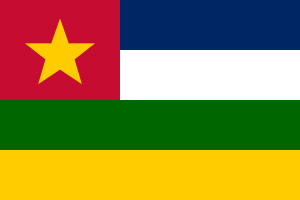Language/Pulaar/Vocabulary/Count-to-10
Hi Pulaar learners! 😊
In this lesson, you will learn how to count to 10 in Pulaar! We'll also include cultural information and interesting facts to enrich your learning experience. If you want to improve your Pulaar skills, check out our Find native speakers and ask them any questions! Plus, make sure to review our Vocabulary list to enhance your knowledge of Pulaar. Ready to get started? Let's go!
Pulaar Numbers[edit | edit source]
Here are the Pulaar numbers from 1 to 10:
| Pulaar | Pronunciation | English |
|---|---|---|
| nool | /no:oɫ/ | one |
| ndaaɓuuɗo | /ndɑ:ɓu:ɗo/ | two |
| yahaɗo | /jɑɦɑɗo/ | three |
| naɗaano | /nɑɗɑ:no/ | four |
| jowuro | /dʒowuro/ | five |
| joworɗo | /dʒoworɗo/ | six |
| jettunde | /dʒettunde/ | seven |
| gonnohe | /gonnoɦe/ | eight |
| sappo | /sɑppo/ | nine |
| lewru | /lewru/ | ten |
Now, let's practice counting! Repeat after me to practice your pronunciation.
- Nool. (/no:oɫ/) - One.
- Ndaaɓuuɗo. (/ndɑ:ɓu:ɗo/) - Two.
- Yahaɗo. (/jɑɦɑɗo/) - Three.
- Naɗaano. (/nɑɗɑ:no/) - Four.
- Jowuro. (/dʒowuro/) - Five.
- Joworɗo. (/dʒoworɗo/) - Six.
- Jettunde. (/dʒettunde/) - Seven.
- Gonnohe. (/gonnoɦe/) - Eight.
- Sappo. (/sɑppo/) - Nine.
- Lewru. (/lewru/) - Ten.
Congratulations! You have now learned how to count up to 10 in Pulaar! As you continue to learn Pulaar, you'll realize that the numerical system is rather complex than the above-mentioned counting sequence, but needless to say, this sequence covers most of your day-to-day needs.
Cultural Information and Interesting facts[edit | edit source]
Did you know that the Pulaar language is spoken by the Fula people in many West African countries, including Senegal, Mauritania, Guinea, Mali, Cameroon, Niger, Burkina Faso, Nigeria and Chad? In fact, it is often used as a lingua franca or common language between different ethnic groups in these countries. The Fula people are known for their strong sense of community and hospitality, and their culture emphasizes respect for elders, mutual assistance, and hard work. If you have a chance to visit any of these countries, don't be surprised if you are invited to share a meal or sit down for a cup of tea with a Fula family.
In addition to the Fula culture, the Pulaar language has been influential in many spheres, including music and literature. For example, Amadou Hampaté Bâ, a well-known Malian writer and ethnologist, wrote many of his books in Pulaar, including "Amkoullel l'Enfant peul" ("Amkoullel the Fula Child"), which has been translated into many languages. Pulaar music and dance are also an important part of West African culture, and you may have heard of the famous Senegalese musician Baaba Maal, who sings in both Pulaar and Wolof.
Learning Pulaar is not only for communication purposes but can lead you to understand various West African cultures and meet new people, and open up career opportunities.
➡ If you have any questions, please ask them in the comments section below.
➡ Feel free to edit this wiki page if you think it can be improved. 😎

